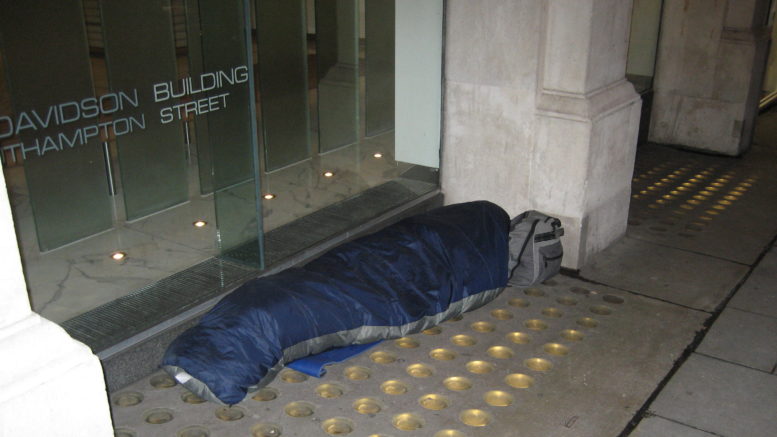It seems that the charity Crisis has finally seen the benefit of tenant training to help vulnerable people to secure a home to live in.
15 years ago, I was working for a charity which helped homeless people into accommodation by providing a paper ‘bond’, which stood in place of a cash deposit. It was one of the longest running and most successful schemes of its’ kind, at that time having been in existence nearly 10 years and it still continues to this day.
My role was to help landlords, to provide them with some support and help them when there were issues with the tenants. I had witnessed in my previous work the homeless and how often, due to ignorance, they did not present themselves well as prospective tenants.
I also have to say that I had seen increasing numbers that presented as homeless and either due to their own fault, or just circumstances, they had no-one to vouch for them, no-one who would give them a helping hand; and forgive me for showing my age, with no idea of manners or ethics.
In my then new post, I talked to private landlords. Saw the kinder landlord, who lived with the thoughts ‘There but the grace of God go I’ and ‘I won’t give anyone a property I would not live in’. All too often, their generosity of attitude was repaid by theft from properties, by unbelievable damage by tenants who had appeared, on the face of it, grateful for a decent home. More and more I heard landlords say that they would remove the furniture and appliances they had gladly given in their days of innocence.
Whilst my sympathies were always with the landlord, I could not wipe from my brain the sad cases I had seen, of a homeless young man on a sleeting November evening being told there was nowhere for him to go. Landlords refused to accept bonds, put unreasonable age criteria on and became far less willing to trust the referrals they received from social services and others who looked for accommodation in the private sector for their client group.
I believed that what was needed was some form of tenant training for the homeless, which would show a potential landlord that this person knew how to behave in a tenancy; this person understood that housing benefit claims could not be delayed; that proof of income and identity were vitally important – and this was before Right to Rent!
I devised a tenant training pack; made sure I knew the situation with regard to claiming benefits; contacted private landlords and got their support and agreement to take part in some of the sessions. I set about making contact with the services that came into contact with the homeless – included were the temporary accommodation providers.
After all my efforts and witnessing the need for this kind of help, the local authority would not allow me to proceed – saying it was more appropriate for them to do it. I was in no position to argue and I did agree – they should do it. What I envisaged, as a means of regular contact to cover various aspects, has never happened.
Crisis has now devised a tenant training programme called ‘Renting Ready’ which it will deliver through the 11 Skylight centres it runs across the country. Local authorities need to take on-board that not all people, whether because of mental health issues, drugs, alcohol, poverty in their early lives, are able to become model tenants on their own.
Chris Hancock, head of housing with Crisis, said in an article ‘We know that with the right support every homeless person can succeed in their tenancy, but with Renting Ready we can help prove that fact to their landlord (or prospective landlord) and most importantly, to themselves’.
Tenants need to feel trusted, that they will not all be a liability to the landlord. This type of tenant training can give them something to feel proud about. I just wish my small voice had been heard 15 years ago.
For advice on buy to let issues – General Knowledge









Be the first to comment on "Tenant Training at Last"